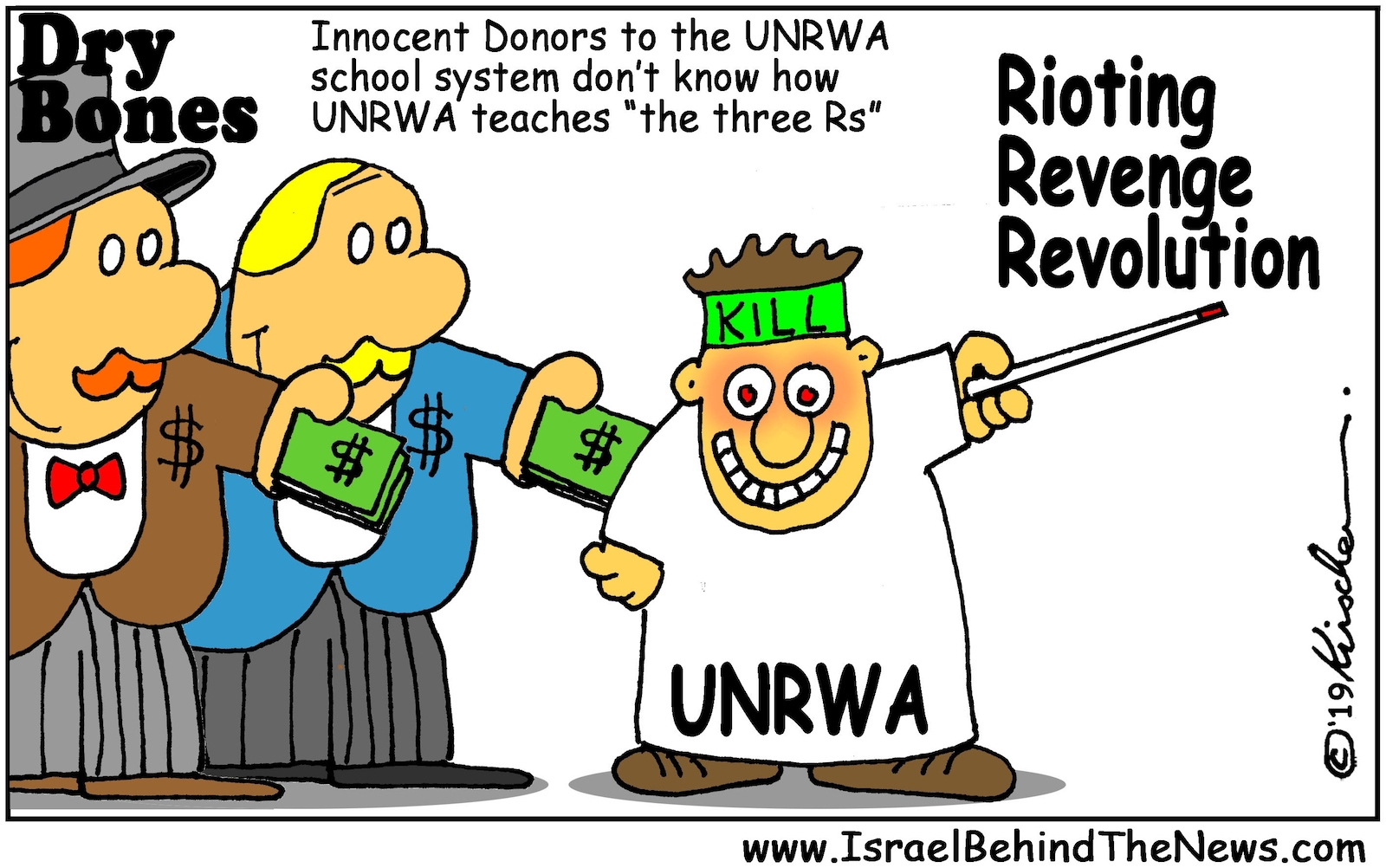PMW: On Yom Kippur War anniversary Fatah implicitly calls on Arab states to wage war against Israel
Fatah on its Facebook page justifies Arabs launching war on Israel, stating that the same "Israeli danger that the Arabs fought ...still exist"UNRWA must evolve or dissolve, says senior agency official at end of General Assembly
- Israel "constitutes the central threat to the [Arab] nation, its interests, its future, and its holy sites"
- "The anniversary of [the Yom Kippur War] is a call to the Arab nation and its leaders to end this dark and bloody chapter that the nation is going through"
In 1973, Egypt and Syria simultaneously launched a surprise attack on Israel on Yom Kippur - the Day of Atonement and the holiest day in Judaism. Over the next three weeks, Israel succeeded pushing the Arab forces back but suffered heavy losses with 2,688 fallen soldiers and thousands of wounded.
Now, on the anniversary of the war, Fatah is telling Arab states that the same need to attack still exists:
Posted text: "The anniversary of the October War (i.e., the 1973 Yom Kippur War) is a call to the Arab nation and its leaders to end this dark and bloody chapter that the nation is going through; it is a call to remind [us] that the Israeli danger that the Arabs fought that war in order to confront still exists, and constitutes the central threat to the [Arab] nation, its interests, its future, and its holy sites."
[Official Fatah Facebook page, Oct. 6, 2019]
This text was posted by Fatah on its official Facebook page and written by Secretary of Fatah's Branch in Poland Khalil Nazzal.
“Direct pressure” by donors is the most likely way to induce the United Nations Relief and Works Agency to change, former UNRWA general counsel James Lindsay told JNS as the 74th session of the U.N. General Assembly came to a close last week in New York.
Speaking from Geneva, Lindsay—the only former senior UNRWA official ever to have written a thorough critique of the agency, which is tasked with serving 5.6 million Palestinian refugees in the West Bank, Gaza, eastern Jerusalem, Syria, Lebanon and Jordan—told JNS that while the renewal of the agency’s mandate in the coming months was “pretty much a foregone conclusion,” donor countries can still have a very significant impact. (The agency’s mandate must be renewed every three years.)
Donors countries should be encouraged to do “the right thing,” he said, by “pressure and embarrassment,” if necessary.
As Palestinian and Jordanian ministers met on the sidelines of the General Assembly meeting to try to ensure a renewal of the agency’s mandate, Lindsay exposed various structural problems with UNRWA that go beyond alleged abuses of authority by senior agency officials. (UNRWA is currently under investigation by U.N. Secretary-General António Guterres following accusations of ethical misconduct and corruption.)
Speaking at a side event at the 42nd session of the U.N. Human Rights Council on Sept. 23, Lindsay critiqued the notoriously anti-Israel agency, suggesting that it must evolve or dissolve. Lindsay detailed UNRWA’s undermining of its own mission as a “humanitarian and welfare organization focused on the immediate relief of people in distress.”
For example, he said, only 10 percent of the organization’s current budget goes to basic, immediate needs, while the rest goes to education and medical care, which he called “governmental responsibilities.”
“There is no reason why the United Nations should be providing that,” he said.
U.N. Pleads for Money as Finances Poised to Run Dry by Month's End
The United Nations is running a deficit of $230 million, Secretary General Antonio Guterres warned on Monday, and may run out of money by the end of October unless world governments immediately meet their financial obligations.
U.S. taxpayers would most likely be hardest hit by any immediate cash injection into the global organization.
The United States is by far the U.N.’s biggest financial contributor, providing 22 percent of its operating budget and funding 28 percent of peacekeeping missions, which currently cost $8 billion annually.
The next two major contributors are Germany and the U.K.
In a letter intended for the 37,000 employees at the U.N. secretariat and obtained by AFP, Guterres said unspecified, “additional stop-gap measures” would have to be taken to ensure salaries and entitilements are met.
These might include holding less meetings and cutting back on travel and associated entitlements.
“Member States have paid only 70 per cent of the total amount needed for our regular budget operations in 2019. This translates into a cash shortage of $230 million at the end of September. We run the risk of depleting our backup liquidity reserves by the end of the month,” he wrote.
Donald Trump has long pushed for reform of the U.N. and just last week warned the “future does not belong to globalists” in a warning to the organization’s leaders:
In December 2017 Nikki Haley, the then United States Ambassador to the organization, announced the federal government had reduced its contribution to the U.N.’s annual budget by $285 million, as Breitbart News reported.
As Ambassador of Mexico to UNESCO, Andres Roemer took a principled stand—costing him his job—when he refused to cast a vote for a resolution denying the Jewish people’s historic connection to Jerusalem and its Temple Mount. Now Israel's Ramat Gan has named a street in his honor. pic.twitter.com/QKb3VvFd9H
— Hillel Neuer (@HillelNeuer) October 8, 2019

































.jpg)





